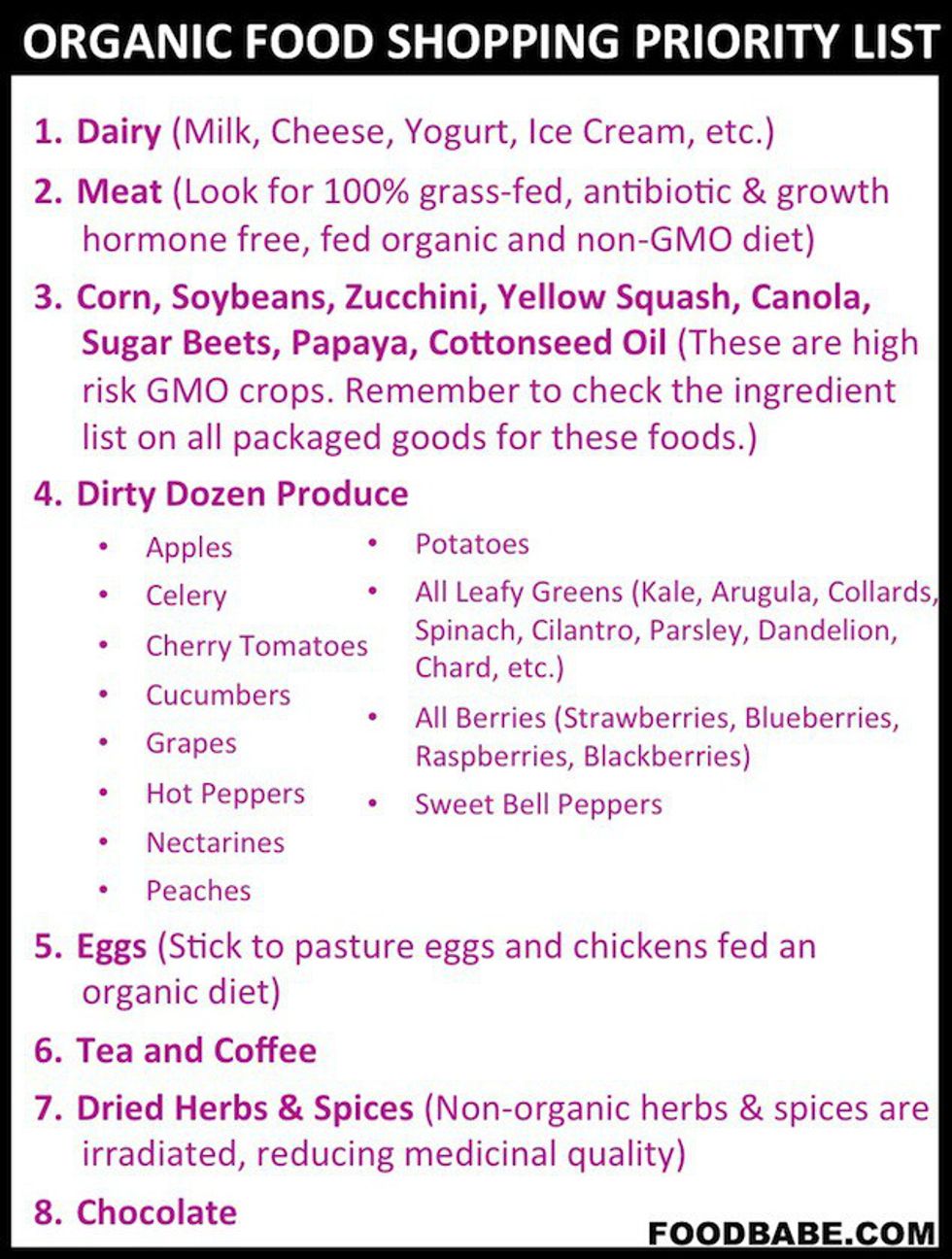The benefits of living a healthy, organic lifestyle have become common knowledge. Organic produce contains fewer pesticides, the food is often fresher, and the methods used in organic farming are better for the environment. Many people strive to eat entirely organic, but the price and time requirement seem like major hurdles for them. The good news is, being mindful of what you put into your body does not have to come at a high cost.
If you want to commit to eating organic, making a few small changes will go a long way. Once you learn the ropes of selecting healthier options on a budget, that lifestyle becomes much easier to maintain on a regular basis. Habit is like a muscle, the more you exercise it, the stronger it gets. By making a few small tweaks, you can start to change some of your shopping/eating habits, and this will have a ripple effect on the rest of your life.
Grow your own.
I know that gardening seems like a whole ordeal that requires a lot of space, but even growing a few herbs in your windowsill can save you some green. Herbs especially can be really expensive to buy, but they take up such little space to grow and are relatively inexpensive for the amount you can get. As for your favorite vegetables, you don't necessarily need a garden, just a big pot and some sunlight. To keep it super cheap, up-cycle empty egg cartons to sprout some seedlings, and milk cartons or empty cans as pots. You can find out more about growing your own produce here.
Buy what you can in bulk.
Buying in bulk is usually much more cost-effective in the long run. Spices, nuts, dried fruit, pasta, and grains are all great to stock up on. Co-ops and natural stores will almost always have bulk bins where you can scoop as much as you want into a bag.
If you frequent a certain health food store or co-op, it may be worth checking out their loyalty programs as well. If you are going to stock up all at once, you might as well accumulate some points that you can use on future purchases.
Choose the most important foods to buy organic, and make them a priority.
Food Babe put together this handy list (below) for which foods you should absolutely buy organic. Some items are more important than others to buy organic based on the amount of exposure these foods get to pesticides. As a general rule, any kind of produce where you would eat the peel would best be bought organic.
If you can't afford to buy organic meat or dairy, you can reduce your overall consumption, which will be easier on your body and your wallet. In order to meet your protein needs, replace half of the meat you would eat with organic beans.
Cook from scratch
Often when we're on a budget, it means we have to work a lot, which can mean that we rely on convenience food as major staples in our diets. However, you build a better relationship with food (and enjoy it more) when you make your own and know exactly what is going into it. Also, buying food out rather than cooking at home can definitely add up. Look up some recipes, plan your meals for the week, and prep ingredients ahead of time. It's all about changing your habits, but once you do, your new lifestyle will become much easier to stick to.
Leftovers
One large portion of food can become an entire week of lunches. This can save you money, and is convenient for busy schedules. If you have a crock pot, there are plenty of plant-based recipes you can make that are not only extremely easy, but long-lasting.
We tend to make a lot of excuses when it comes to making a major lifestyle change, but eating organic can be affordable and easy if you know some of the hacks. There are so many positive benefits to mindful eating, it just takes the willingness to change.




















